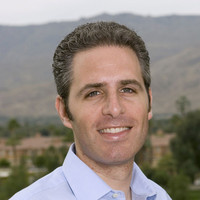Last year, Princeton economist Alan Blinder published a much-discussed study predicting that up to 42 million American jobs are "potentially offshorable" because they revolve around services that "are easily deliverable through a wire" (ie. the Internet). Blinder's report fed a fear that now dominates local politics — the fear that if a state or city enacts any kind of public interest laws, businesses will quickly move away.
This fear has obstructed populist legislative proposals that would mandate corporations provide decent wages, protect the environment and pay their share of taxes. Such proposals are routinely discouraged by experts who say they will harm local economies. Instead, states and localities have been pushed into a destructive bidding war. They compete with each other to offer more and more wasteful corporate tax subsidies as bribes to get companies to put down roots.
But while media coverage of Blinder's data focused on the bad news and the fear, his report included an unstated message of hope that some are starting to discover. Ever so gradually, political leaders and organizers are realizing how much leverage they have over companies whose services cannot be conducted "through a wire." Such location-dependent industries are captives of their geography, meaning they can be successfully regulated without fear of abandonment. They are susceptible to an emerging new force — call it captive-industry populism.
Take a look at Livingston, Montana. Its stretch of the Yellowstone River might be known as the setting for the film "A River Runs Through It," but the town also has the Burlington Northern Santa Fe (BNSF) railroad running through it, as well as an underground plume of industrial toxins dumped by the company over many decades. In 2006, Montana Gov. Brian Schweitzer (D) declared that if BNSF refused to clean up its mess, the state would do the job itself and — here's the kicker — bill the company for the cost.
Such a threat might have made an Internet firm flee. But a national railroad is a captive industry. It cannot easily move its infrastructure (tracks, bridges, etc.). That is why when Schweitzer toured Livingston last week, he saw firsthand how his captive-industry populism resulted not in BNSF leaving, but in BNSF spending $10 million to begin cleaning up.
A few clicks north of Livingston, Alaska Gov. Sarah Palin (R) is proposing to reform her state's laws so that they prevent oil companies from avoiding $800 million in taxes this year. Palin knows the oil business is both lucrative and a captive industry, and therefore that "oil-rich states such as Alaska can bump up taxes without much worry about loss of production or oil industry investment," as the Anchorage Daily News reported. Put another way, she knows that no modest tax measure will make the ConocoPhillipses of the world walk away from massive petroleum reserves.
Of course, captive-industry populism goes beyond environmental and energy policy and beyond rural areas. In Emeryville, Calif., grassroots organizers recently passed a voter referendum establishing a $9/hour minimum wage in the town's hotels. The hotels could not convincingly undermine the minimum wage campaign with threats to move because tourism is a captive industry and the hotels' business comes from Emeryville's proximity to Oakland Airport, San Francisco and Silicon Valley.
Meanwhile, New York Gov. Eliot Spitzer (D) this summer signed a "Passenger Bill of Rights." It forces airlines operating in New York to provide basic services to people stranded in planes that are delayed on the tarmac. Spitzer and the legislators who passed the bill realized they didn't have to fear airline lobbyists' threats of slashed service or higher fares. After all, in the Empire State, airlines are a captive industry. They cannot afford to abandon a place whose two biggest airports alone provide 68 million passengers per year, nor can they hike New York fares without being undercut by competitors eager for a share of that giant market.
These initiatives are but a few examples of a growing trend, and they remind us why corporations spend so much cash on lobbying and campaign contributions in efforts to control state and municipal governments. Executives know that even the least populated states and towns have extraordinary leverage over the captive industries within their jurisdictions.
This is the secret buried in Blinder's paper — the axiom rarely discussed in a money-drenched legislative process that typically shies away from regulating corporate power.
But thanks to the captive-industry populists, the secret is getting out.
Writer and political analyst David Sirota is the bestselling author of "Hostile Takeover: How Big Money and Corruption Conquered Our Government & How We Take It Back." His daily blog can be found at www.workingassetsblog.com/sirota. To find out more about David Sirota and read features by other Creators Syndicate writers and cartoonists, visit the Creators Syndicate website at www.creators.com.






View Comments